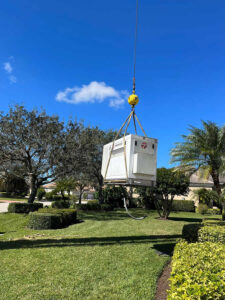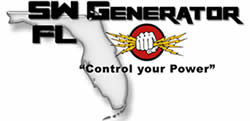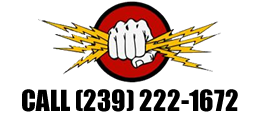Common Mistakes When Buying a Backup Generator

1. Underestimating Power Needs
One of the most common mistakes is underestimating your home’s power requirements. It’s essential to calculate the total wattage of all the appliances and systems you intend to power during an outage. This includes essentials like refrigerators, HVAC systems, lights, and medical equipment. Failing to accurately assess your power needs can lead to overloading the generator, causing it to fail or shut down when you need it the most.
2. Overlooking Fuel Type
Backup generators can run on various fuels, such as gasoline, diesel, natural gas, or propane. Each has its pros and cons in terms of availability, cost, storage, and shelf life. For instance, gasoline is readily available but has a shorter shelf life, whereas propane and natural gas offer longer shelf lives but might not be as readily available during emergencies. Choosing the wrong fuel type for your needs and location can result in inconvenience and additional costs.
3. Ignoring Noise Levels
Generators can be noisy, and ignoring this aspect can lead to discomfort and disturbance for you and your neighbors. Before purchasing, check the decibel ratings of different models. Consider investing in a quieter model or installing a soundproof enclosure if noise is a concern. SWFL Generator can help you find models with acceptable noise levels for residential use.
4. Skipping Professional Installation
Attempting a DIY installation can be risky and lead to improper setup, voided warranties, and even safety hazards. Professional installation ensures that the generator is correctly connected to your home’s electrical system, complies with local codes, and operates safely. SWFL Generator provides expert installation services to ensure your backup generator is set up efficiently and safely.
5. Not Considering Maintenance Needs
Like any other machine, backup generators require regular maintenance to function effectively. Overlooking maintenance can result in breakdowns when you need the generator the most. Regularly check and change the oil, replace filters, and inspect the fuel system. SWFL Generator offers maintenance services to keep your generator in top condition, ensuring reliable performance.
6. Overlooking Transfer Switches
A common mistake is neglecting the importance of a transfer switch, which automatically switches your power supply to the generator during an outage. Without a transfer switch, you may need to manually connect your generator to your home’s electrical system, which can be inconvenient and risky. A transfer switch ensures seamless transition and safe operation. SWFL Generator can help you choose and install the right transfer switch for your generator.
7. Failing to Check Local Regulations
Different regions have varying regulations and permits required for installing backup generators. Failing to comply with local codes can result in fines, penalties, or being forced to remove the generator. Always check local regulations and obtain necessary permits before installation. SWFL Generator is familiar with local codes and can assist you in ensuring compliance.
8. Not Considering Long-Term Costs
While the upfront cost of a generator is a significant factor, it’s crucial to consider long-term costs such as fuel, maintenance, and potential repairs. Some models may be cheaper initially but have higher operational costs. Evaluate the total cost of ownership over the generator’s lifespan to make an informed decision.
9. Choosing the Wrong Size
Opting for a generator that’s too small or too large for your needs is a common mistake. An undersized generator will struggle to power all your appliances, while an oversized one will be inefficient and waste fuel. Proper sizing involves calculating your power needs and consulting with experts to choose the right capacity. SWFL Generator can assist you in selecting a generator that perfectly matches your requirements.
Conclusion
Avoiding these common mistakes can help you choose the right backup generator for your home, ensuring reliable performance during power outages. For expert guidance and professional services, trust SWFL Generator, specializing in Whole House Emergency Backup Generators. Visit swflgenerator.com or call (239) 222-1672 to learn more and get started on securing your home’s power supply.

